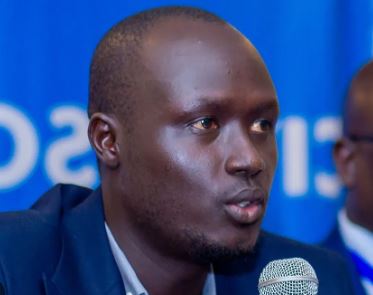The National Security Service (NSS) has reopened the office of INTREPID South Sudan (ISS) in Bor, Jonglei State, a significant development following the organization’s abrupt closure on 2 July.
The shutdown, which was widely condemned as an act of intimidation, had disrupted critical advocacy and humanitarian projects in the state, severely affecting community welfare efforts.
David Deng, the programs coordinator at ISS, confirmed the reopening of their office and highlighted the detrimental effects of the closure on several initiatives, including the Public Excellence Award project backed by the Canadian Embassy. The project, designed to recognize and promote outstanding community contributions, was at risk due to the NSS’s actions.
“We have been engaging with the security apparatus and have had numerous meetings to clarify that the office’s operations should be separated from the individual accusations,” he said. “As of now, our office is officially open.”
Deng noted that the reopening comes after peaceful protests in Bor led to accusations against Bol Deng Bol, ISS’s Executive Director, who has been in hiding since the closure.
The protests were in response to delayed salaries and worsening economic conditions, reflecting the broader climate of fear and unrest affecting local activists.
According to Deng, negotiations are ongoing with the NSS to cease the pursuit of Bol, underscoring efforts to ensure his safety and return.
Meanwhile, Peter Ajak Ayom, the program officer of the Child Care Organization and a prominent civil society member, welcomed the office’s reopening.
“We thank the National Security for their understanding,” he remarked. “While we are relieved to resume our work, we acknowledge that the past month and a half have negatively impacted our community efforts.”
In recent months, the Community Empowerment for Progress Organization (CEPO) has documented a surge in civic space violations. These include the arbitrary arrests of journalists Chol Kimani and Abraham Aleu during peaceful demonstrations from April to June 2024. While Chol was released without charges, Aleu endured nearly a month of arbitrary detention before his release, also without formal charges.
Criticism has mounted against Jonglei Governor Mahjoub Biel Turuk for his perceived inaction regarding the intimidation and harassment faced by activists and journalists. Local and international observers have expressed doubts about the governor’s commitment to expanding political and civic space, especially in light of shrinking freedoms in the state.
Human rights watchdogs, UN agencies, and the South Sudan Civil Society Forum have condemned the office closure as indicative of the broader erosion of civic and political freedoms. They have called for transparency and a renewed commitment to democratic principles, urging South Sudanese authorities to uphold civil liberties and protect citizens’ rights.
As of now, NSS officials have not issued any statements addressing the office closure or the related harassment allegations.




